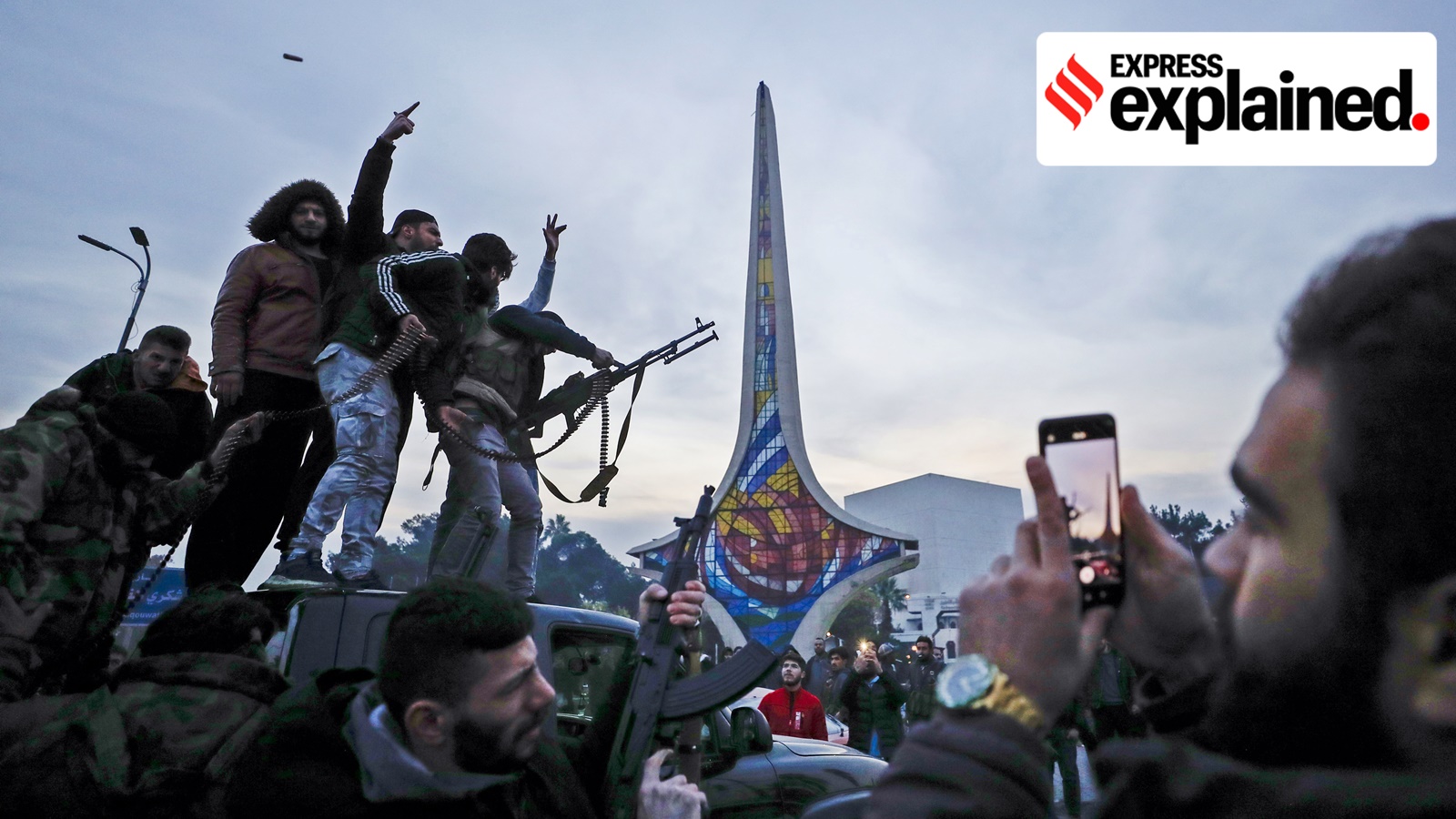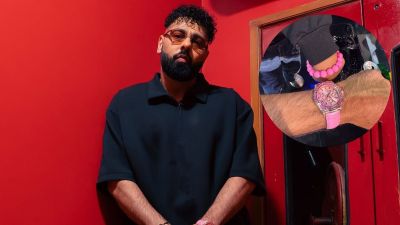The exit of Syrian President Bashar al-Assad has been met with joy in the streets of Damascus but in capitals near and far, including New Delhi, the multiple moving parts in the sprawling insurrection are keeping many fingers crossed.
Assad, ruling the country since 2000, having inherited the legacy from his father Hafez al-Assad since 1971, was forced to flee the country Sunday (December 8) as Islamist rebels led by Hayat Tahrir al-Sham (HTS) marched into the Syrian capital.

Discontent with Assad
The anger against Assad’s regime is a curious case in the Arab world. Thrust into power at the age of 35, Assad made the transition from a reluctant leader to one CNN called the “most popular” in December 2009, with about 68% Arabs voting for him. Trained to be an ophthalmologist, Assad’s style was informal as he interacted with people in restaurants and public places.
When this reporter visited Syria in October 2011, there was no missing the strong personality cult around him: hoardings, pictures, posters of him dotting the landscape across cities.
Along the way, in hindsight, the eye doctor-turned-President faltered. The economic liberalisation process, which Assad began, did not factor in social justice. With modern Syria opening up, the lower strata in the society suffered.
The grouse against the regime had a broad sweep from local economic and livelihood issues to democratic reforms. And many felt that religious extremists sensed an opportunity in this highly modern and secular society.
The Arab Spring that swept West Asia and North Africa in 2011 — from Tunisia, Egypt and Libya — also echoed in street protests in Syria. But Assad put it down with force unleashing a harsh crackdown on those opposing the regime. This set off a civil war, with the US backing the rebels while Russia, Iran and Hezbollah backing Assad.
Story continues below this ad
Indeed, the local Syrian war was seen as a theatre of global conflict.
Assad’s regime was accused of even using chemical weapons on the rebels and his own people even as the Islamic State took control of some parts of Syria.
Shift in favour of HTS
In 14 years, Assad’s crackdown put down the fire and the conflict got frozen, with rebels biding their time.
In April this year, HTS chief Abu Muhammad al-Jawlani (also spelt as “al-Jolani”) — the group that defeated Assad’s forces — told his lieutenants, “God willing, we will celebrate Eid al-Fitr in Aleppo and Damascus soon.” Eid al-Fitr is still four months away.
Story continues below this ad
Over the last six months, Syria’s three main allies — Russia, Iran and Hezbollah — have been either distracted or weakened, sources in New Delhi said, pointing out that this provided a fresh opening to the rebels.
With Russia fighting its war in Ukraine, Iran caught in a conflict with Israel, and Hezbollah having suffered a debilitating blow in the last three months, Assad’s army was on its own —unable to defend some of the key cities against rebel groups, some of which had links to Al Qaeda. Turkey, too, is believed to have supported HTS and the rebel groups.
HTS has a chequered history that will shape its present and future course. In a piece, Aaron Y. Zelin, a senior fellow at Washington Institute and an authority on Syria, explains why he calls them “political jihadists,” pragmatic and practical rather than “Salafist jihads” fired by ideology.
HTS started out as a branch of the Islamic State’s predecessor group, the Islamic State of Iraq, when it was founded in January 2012 as Jabhat al-Nusrah. However, Zelin says, when Abu Bakr al-Baghdadi overtly brought the organization from Iraq to Syria in April 2013, Jawlani “disavowed Baghdadi and pledged allegiance to Ayman al-Zawahiri, then the leader of al-Qaeda.”
Story continues below this ad
Three years later, came another twist: Jawlani disavowed al-Qaeda and global jihad and transitioned to HTS focused on fighting locally. Zelin writes: “At the time, there were questions about how real all of this was considering the group’s history. However, in the intervening time, not only has Hayat Tahrir al-Sham destroyed the Islamic State’s presence in the Liberated Areas, but it also dismantled al-Qaeda’s attempt at building a new branch in Syria called Huras al-Din in June 2020. At the same time, the group still espouses an Islamist worldview, which is why I describe its members as more political jihadists than salafi jihadists because of their greater pragmatism vis-á-vis politics and theology not driving decision-making as it does with the Islamic State or al-Qaeda.”
View from rest of the world, New Delhi
Zelin’s interpretation is echoed by many Western analysts who see HTS as more focused on Syrian nationalism rather than jihadi ambitions, but New Delhi is much more circumspect about HTS’s moves in the days and weeks ahead.
South Block experts recall how the Arab Spring experiment in Libya, after the fall of Gaddafi, quickly unravelled into chaos. And how in Egypt, the Muslim Brotherhood took control. So there is caution in the Indian establishment on how it will play out in Syria post-Assad.
Hadi al-Bahra, the head of Syria’s main opposition group abroad (known as the Coalition for Syrian Revolutionary and Opposition Forces), said in a statement Sunday that Damascus is now “without Bashar al-Assad.”
Story continues below this ad
In a statement aired on Syrian state television earlier Sunday, a group of opposition fighters said they have “liberated” Damascus and overthrown the “tyrant al-Assad,” adding that all detainees held in the regime’s prisons have been released.
HTS’s al-Jawlani has, so far, tried to assuage the fears of the minorities. On November 29, he told soldiers, after the takeover of Aleppo, the “first priority is to protect the property and lives of civilians and to establish security and calm the fears of people from all sects”.
“Syria deserves a governing system that is institutional, no one where a single ruler makes arbitrary decisions,” he told CNN last week. “Don’t judge by words, but by actions,” he said.
New Delhi, and others around the world, will be watching the actions – just as they are watching the Taliban’s in Afghanistan.








































